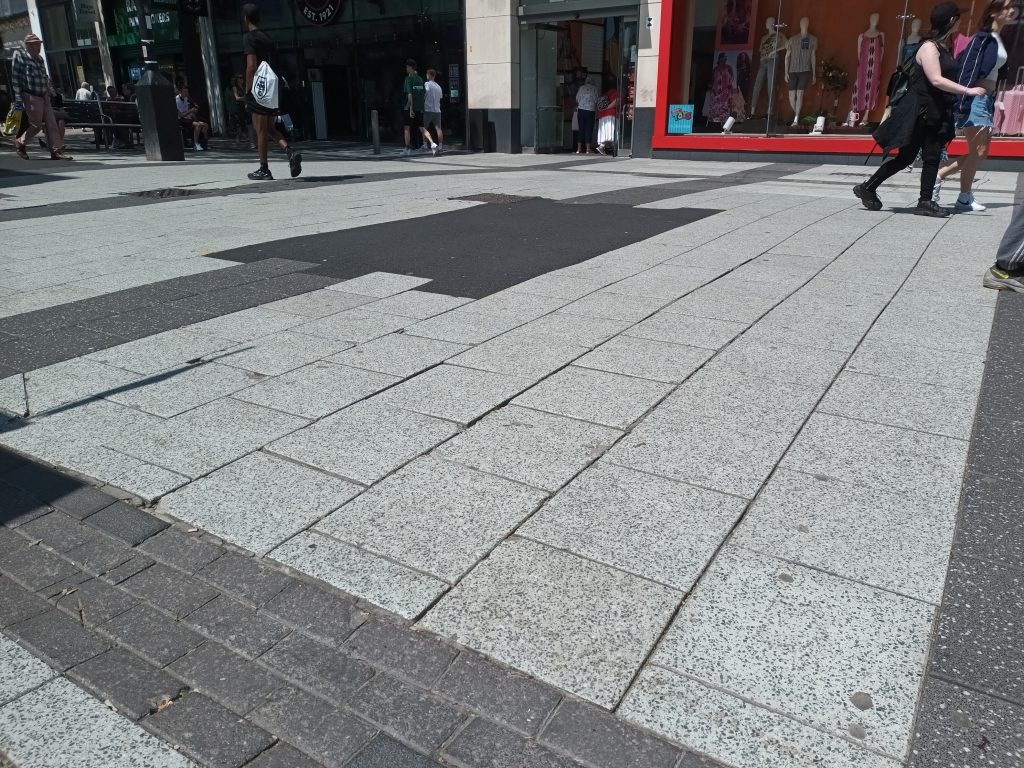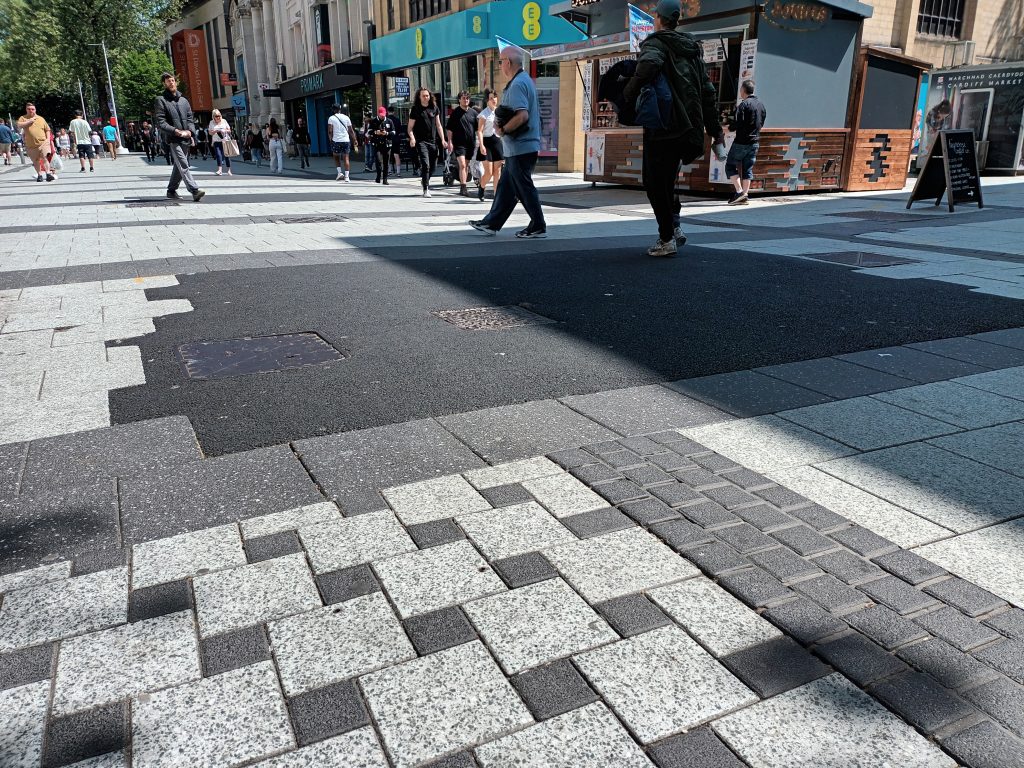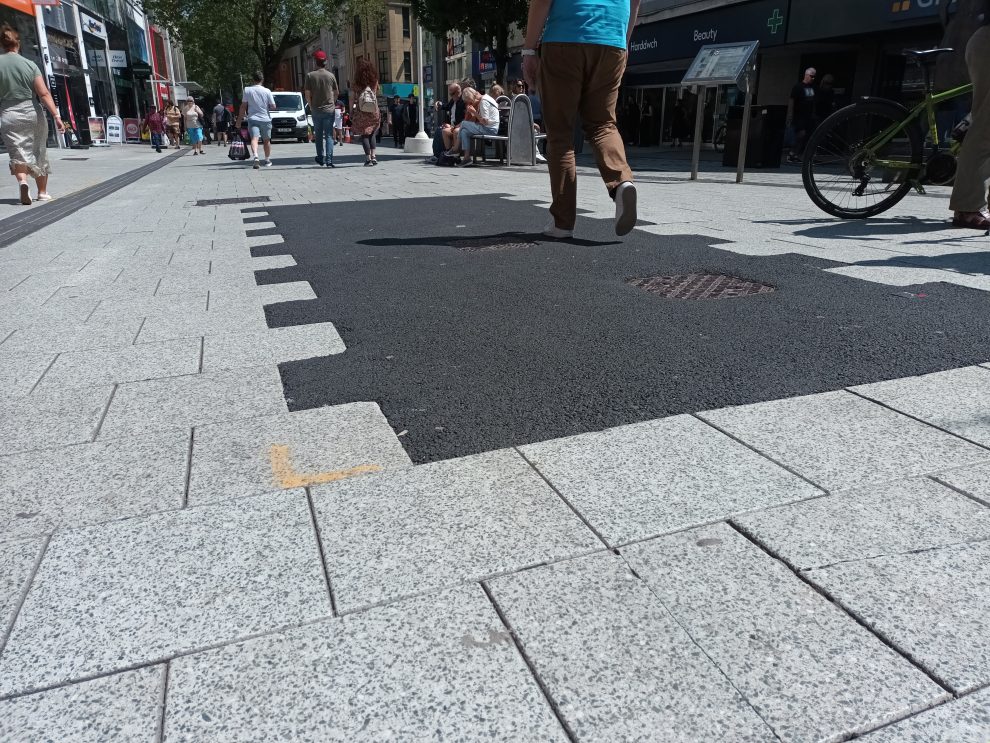THERE are still no plans yet to get rid of black patches of tarmac that appeared on one of Cardiff’s busiest shopping streets earlier this year.
Cardiff Council laid certain sections of Queen Street with tarmac in March 2024 after some of the paving slabs were damaged.
The local authority assured members of the public that the tarmacking was a temporary solution and that the covered areas would be re-assessed once winter was over to find a longer-term solution.
When asked for an update on how work was coming along find a longer-term solution, the council said that plans were still in development.

There is visible damage to pavements in pedestrianised areas across Cardiff city centre. The Hayes, Working Street and Trinity Street are just some of the other streets that have suffered cracked and loose paving stones in the past.
Much of The Hayes is not adopted by Cardiff Council.
The local authority said a combination of a very wet winter and cold snaps resulted in the damage to paving stones on Queen Street.
On plans to find a permanent solution for the street, a Cardiff Council spokesperson said: “Plans are being developed, but there is no further update to give at the moment.”

WalesOnline reported in May 2023 that Cardiff Council spent more than £1.6m on fixing broken or damaged pavements in the three years up to March 2023.
Council data from a freedom of information request shows that it spent more than £25,200 on fixing potholes in the city in 2023.
The council spent £21,750 and £26,664 on fixing potholes in 2021 and 2022 respectively.
The same council data shows that the average time to fix potholes per area went up from 2021 to 2023.
For 2021 it was 12 days and this went up to 31 days in 2022 before dropping down to 25 days in 2023.
About 8,900 more potholes were recorded in Cardiff by the council in 2023 compared to what was found in 2021.
More than 9,600 were recorded in 2021 and more than 18,500 were recorded for 2023. About 17,000 potholes were recorded in 2022.















